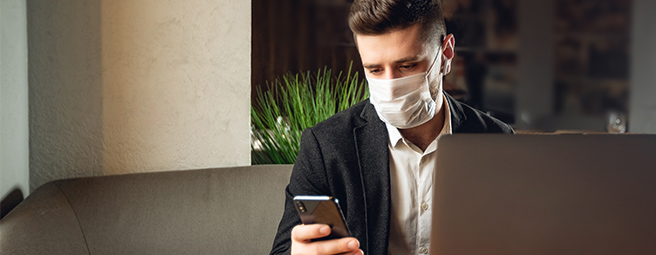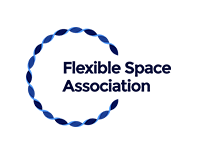
8 Future Workplace Trends for Post-Coronavirus
There’s no getting around it: the global pandemic has been brutal for business. For now, the goal of many employers is simply to survive the shuttered facades. Soon, however, survival will give way to adaptation. Employers, just like all evolved creatures, will find their own ways to adapt to new circumstances. This is especially true when lives (and livelihoods) are on the line.
As we look toward the not-so-distant future, how are we expecting workplaces to adapt to our new normal? Davinci explores 8 predictions for post-coronavirus workplace trends and how they can help your business thrive in the long term.
1. Reopenings, Reclosings, Repeat
“Realistic expectations” is the key phrase here. With the coronavirus being a moving target, we can expect specific locations to recover, flare up, then recover again. This cycle may repeat itself a few times before the pandemic is declared over. To combat this, reopenings will be targeted by location and done in stages.
Don’t be surprised if other types of localized threats, whether from different diseases or otherwise, will require similar measures to be taken in the future.
2. The Six-Feet Office
For an entire generation, “six feet” will always be attributed to safety from illness. All of a sudden, we are keenly aware of our personal space and expect it to be respected.
The “six-feet office” will feature not only plastic barriers and pedestrian lanes, but also staggering or rotating shifts for employees. Additionally, “at-risk” hours and diminished “open” hours could be keepers.
3. An Uptick in Hygiene
As history proves, improving one’s hygiene has always allowed humanity to take a leap forward. Thanks to the fear of infection, future offices will forever feature:
• Masks and gloves worn by vulnerable or potentially contagious employees
• 20-second hand washing requirements and hand sanitizing stations
• Disposable, one-time-use supplies (hopefully biodegradable ones)
• Regular and required temperature checks of employees and customers
• Entire office fogging sanitization cycles
• Hospital-grade air purification systems
4. Touch-Free Technology
Consumers have been waiting long enough for touch-free technology to really take off, and the time has finally come.
Cash is already almost obsolete in many countries around the world, and we can expect the same to be true across the U.S. very soon. During the outbreak, South Korea took to “taking all banknotes out of circulation for two weeks—and burning some—to reduce the spread of the virus.” China deep cleaned “potentially infected cash with ultraviolet light and high temperatures” and also destroyed bills. Some businesses have banned cash as a form of payment. You can expect mobile and contactless payment options to be the only option very soon.
Other touchless tech on a quick rise to the top include motion sensors and facial recognition for everything from security checkpoints to elevators.
5. A Shift in Corporate Real Estate
There are likely to be many changes relating to real estate in the corporate world. Many employees will be hard-pressed to take up their long twice-daily commute once again. The employees who proved themselves adept in at-home work will demand more location flexibility. Giant corporate office buildings will probably downsize to accommodate a reduced in-house staff.
Temporary office spaces and hot desks will certainly gain ground. This short-term letting of smaller office space offers a lot of benefits, namely a freedom from long-term leases and an expansion of flexibility. We predict this workplace trend in the future will never go out of style.
6. Stronger (and More Lenient) Sick Leave Policies
There are no federal legal requirements for paid sick leave, but don’t be surprised to soon see people pushing for a policy change. For a vast number of “essential employees,” proper sick leave benefits don’t exist. They also don’t usually exist for part-time, temporary, or contract workers. There’s a good chance that such benefits eventually become mandatory for employers to provide.
Where sick leave is already in place, it may become pertinent to update outdated requirements such as presenting a doctor’s note.
7. Proper Work-from-Home Policies
Along the same lines, most companies don’t have any policies that cover work-from-home opportunities. Seeing that so many of us have been doing nothing but working from home, we’ll bet that companies will decide to make it a viable option moving forward. For this to work, policies will need to be in place to cover it.
Examples of topics that might be included in such a policy are:
• Which employees are eligible to work from home
• Specific duties that are/are not allowed to be done from home
• Work schedules (full-time, temporary, rotating days, at discretion, etc.)
• Reasons that demand it (parenting, medical, bad weather, length of commute, etc.)
• Cybersecurity and data privacy
• Team collaboration requirements
• Equipment and software availability
• Revocation of work-from-home option
8. A Stronger Desire to Connect Face-to-Face
If we’ve learned anything during this time of self isolation, it’s that the need for connectivity won’t go away. If anything, we want it more than ever before. While technology, creativity, and sheer grit have given us the tools to bridge the gaping holes of loneliness and boredom, there is no replacement for face-to-face human interaction and collaboration. We crave it. It’s good for us.
In the coming months and years, we won’t forget the solitude we suffered. We won’t take for granted the in-person opportunities in front of us. What we will do is smile more, stop for a leisurely chat, and sincerely wish each other well upon our parting.
Final Thoughts
What about you? In what ways do you predict the post-coronavirus to be different than before? Are there any future workplace trends you’d like to see in terms of space, technology, or policy? Do you enjoy and feel productive when working from home? (If working from home isn’t working out so well for you, rent a private day office so you can focus and finally get something done.)
We at Davinci are excited to get people back in the office, but we are also well aware of the many benefits that come from utilizing temporary and remote meeting locations. Some of these benefits are flexibility of location, reduction of leasing costs, and last-minute availability. In times of uncertainty (which will certainly continue for the foreseeable future) having such an office space in your back pocket comes in handy.

Categories
Subscribe to Our Blog
Archive

- February 2026
- January 2026
- December 2025
- November 2025
- October 2025
- September 2025
- August 2025
- July 2025
- June 2025
- May 2025
- April 2025
- March 2025
- February 2025
- January 2025
- December 2024
- November 2024
- October 2024
- September 2024
- August 2024
- July 2024
- June 2024
- May 2024
- April 2024
- March 2024
- February 2024
- January 2024
- December 2023
- November 2023
- October 2023
- September 2023
- August 2023
- July 2023
- June 2023
- May 2023
- April 2023
- March 2023
- February 2023
- January 2023
- December 2022
- November 2022
- October 2022
- September 2022
- August 2022
- July 2022
- June 2022
- May 2022
- April 2022
- March 2022
- February 2022
- January 2022
- December 2021
- November 2021
- October 2021
- September 2021
- August 2021
- July 2021
- June 2021
- May 2021
- April 2021
- March 2021
- February 2021
- January 2021
- December 2020
- November 2020
- October 2020
- September 2020
- August 2020
- July 2020
- June 2020
- May 2020
- April 2020
- March 2020
- February 2020
- January 2020
- December 2019
- November 2019
- October 2019
- September 2019
- August 2019
- July 2019
- June 2019
- May 2019
- April 2019
- March 2019
- February 2019
- January 2019
- December 2018
- November 2018
- October 2018
- September 2018
- August 2018
- July 2018
- June 2018
- May 2018
- April 2018
- March 2018
- February 2018
- January 2018
- December 2017
- September 2017
- June 2017
- April 2017
- October 2016
- July 2016
- May 2016
- April 2016
- February 2016
- November 2015
- September 2015
- February 2015
- January 2015
- December 2014
- November 2014
- October 2014
- August 2014
- July 2014
- July 2013
- May 2013
- February 2013
- December 2012
Talk to an expert
Want help finding the ideal meeting room? Give us a call
Book the Perfect Meeting Room Now
Find a Meeting Room








